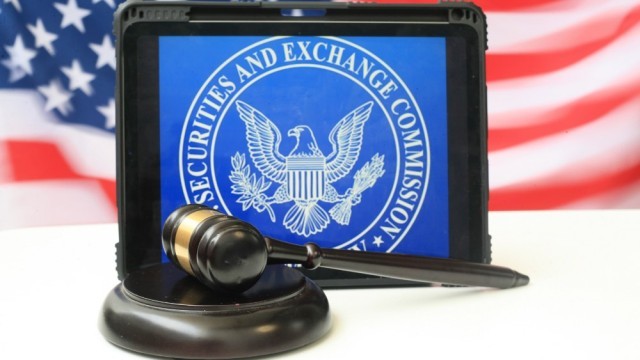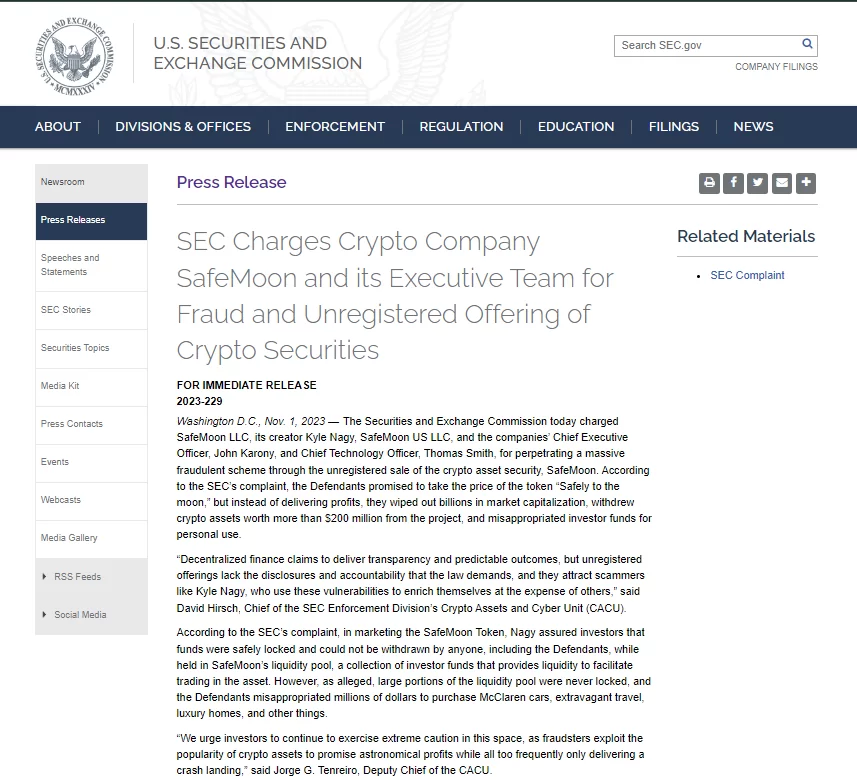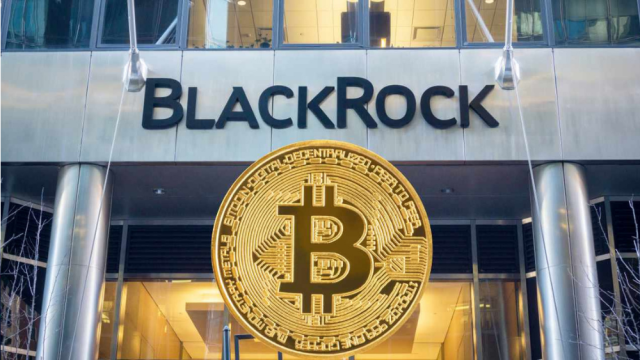Hot News: Sec Targets This Altcoin.
- Posted on November 2, 2023 12:51 AM
- Cryipto News
- 605 Views
The U.S. Securities and Exchange Commission (SEC) has accused the cryptocurrency company SafeMoon and its management team of fraud, alleging their involvement in unregistered cryptocurrency securities sales.

The U.S. Securities and Exchange Commission (SEC) has accused the cryptocurrency company SafeMoon and its management team of fraud, alleging their involvement in unregistered cryptocurrency securities sales. This development represents another example of the cryptocurrency industry's conflicts with regulators and shows that the SEC continues to closely monitor cryptocurrency projects.
The SEC has taken action against meme token project Safemoon (SAFEMOON) this time. The regulatory authority made an announcement on Safemoon's website, accusing the cryptocurrency company SafeMoon and its management team of fraud and offering unregistered cryptocurrency securities.
SEC is targeting the meme coin Safemoon and is closely watching the market. Its general approach is focused on fraud and unregistered securities. Whenever a suspicious project emerges, it faces such allegations. Most recently, the Safemoon (SAFEMOON) project and its team came under the SEC's scrutiny.
The SEC has accused SafeMoon LLC, its founder Kyle Nagy, SafeMoon US LLC, and the CEO of these companies, John Karony, and Chief Technology Officer Thomas Smith of executing a major fraudulent scheme through the unregistered sale of the crypto asset security called Safemoon. According to the SEC, these individuals promised to send the token's value "safely to the moon," but instead wiped out billions of dollars in market value. They are also alleged to have withdrawn over $200 million worth of cryptocurrency from the meme coin project and misused investor funds for personal use. David Hirsch, Chief of the Enforcement Division's Cyber Unit (CACU) at the SEC, made the following statement regarding this development:
"Decentralized finance promises transparency and predictable outcomes. However, unregistered offerings lack legal disclosures and accountability. These security gaps create opportunities for fraudsters like Kyle Nagy to enrich themselves at the expense of others."

The court documents related to the case contain the following statements:
"Nagy claimed in marketing materials, technical reviews, and the website that these assets would be 'locked up' for at least four years and rendered inaccessible. Smith and Karony reiterated and disseminated these deceptive statements in social media posts and other public communications."
The SEC alleges that these funds were used by Karony, Smith, and Nagy to purchase "luxury cars, extravagant travels, luxury homes, and other items worth millions of dollars."

